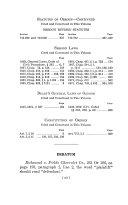
Reports of Cases Decided in the Supreme Court of the State of Oregon
- ISBN 10 : UCAL:B5038504
- Judul : Reports of Cases Decided in the Supreme Court of the State of Oregon
- Pengarang : Oregon. Supreme Court, Charles Byron Bellinger, Thomas Benton Odeneal, Julius Augustus Stratton, William Henry Holmes, William Wallace Thager, Reuben S. Stratton, George Henry Burnett, Robert Graves Morrow, James W. Crawford, Frank A. Turner, Charles Byron Bellinger, Thomas Benton Odeneal, Julius Augustus Stratton, William Henry Holmes, William Wallace Thager, Reuben S. Stratton, George Henry Burnett, Robert Graves Morrow, James W. Crawford, Frank A. Turner, Charles Byron Bellinger, Thomas Benton Odeneal, Julius Augustus Stratton, William Henry Holmes, William Wallace Thager, Reuben S. Stratton, George Henry Burnett, Robert Graves Morrow, James W. Crawford, Frank A. Turner, Charles Byron Bellinger, Thomas Benton Odeneal, Julius Augustus Stratton, William Henry Holmes, William Wallace Thager, Reuben S. Stratton, George Henry Burnett, Robert Graves Morrow, James W. Crawford, Frank A. Turner, Charles Byron Bellinger, Thomas Benton Odeneal, Julius Augustus Stratton, William Henry Holmes, William Wallace Thager, Reuben S. Stratton, George Henry Burnett, Robert Graves Morrow, James W. Crawford, Frank A. Turner,
- Kategori : Law reports; digests; etc
- Bahasa : en
- Tahun : 1973
- Halaman : 0
- Google Book : http://books.google.co.id/books?id=slhOAQAAIAAJ&dq=inauthor:george+r+terry&hl=&source=gbs_api
-
Ketersediaan :
Cite as 263 Or. 293 Agreement without first giving Terry 10 days' written notice of
its intention to do so * * * in order to ... G. Terry and Gladys R. Terry in that they
did not protect the real property which is the subject to the Indemnity Agreement ...









